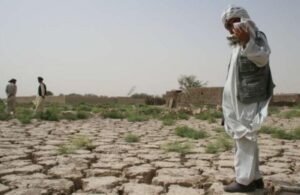MONITORING (SW) – The UN has warned that without a robust plan to revive livelihood for Afghans in the war-ravaged country it would be difficult to address the massive humanitarian crisis.
Abdallah Al Dardari, UNDP Resident Representative in Afghanistan shared his reaction at a press conference in Geneva to the recent international pledging conference and what it means for the future of Afghanistan.
“It is very clear that the humanitarian operation is not sufficient”, he said.
Al Darbari added that Afghanistan was on the verge of economic collapse on top of the humanitarian challenges. “If we want to reduce the humanitarian load, we need to work on the livelihood”, he said, adding that Afghanistan’s GDP size has drop by 25 % since August, which is equal to the loss of GDP in Syria during seven years of the civil war.
He added that in the best case scenario, Afghanistan can only achieve only 46 % of the SDGs. “Destabilization in Afghanistan is a global issue, dignified living of Afghans is a global good”, he stressed.
Responding to a question about the collapsed financial system, the UNDP country director said it is pivotal to revive the banking system in Afghanistan and to revive credit guarantee facility and understand a possible future for the banking system. “There is no economy without a functioning banking system … unemployment has reached over 30 per cent of the working population”, he said, adding that up to 900,000 additional people are unemployed in Afghanistan since the economy is stuck and no employment created. “The best way to deal with the humanitarian challenge is to address the (issue) of livelihood”, he said.
On Wednesday, 41 donors pledged more than $2.44 billion for the humanitarian response in Afghanistan and neighboring countries.
Despite collective efforts, the country stands at near universal poverty rates, a fractured banking system and liquidity crisis, and a suspension of vital trade and livelihoods. Some 95 percent of people do not have enough to eat.
ENDS






